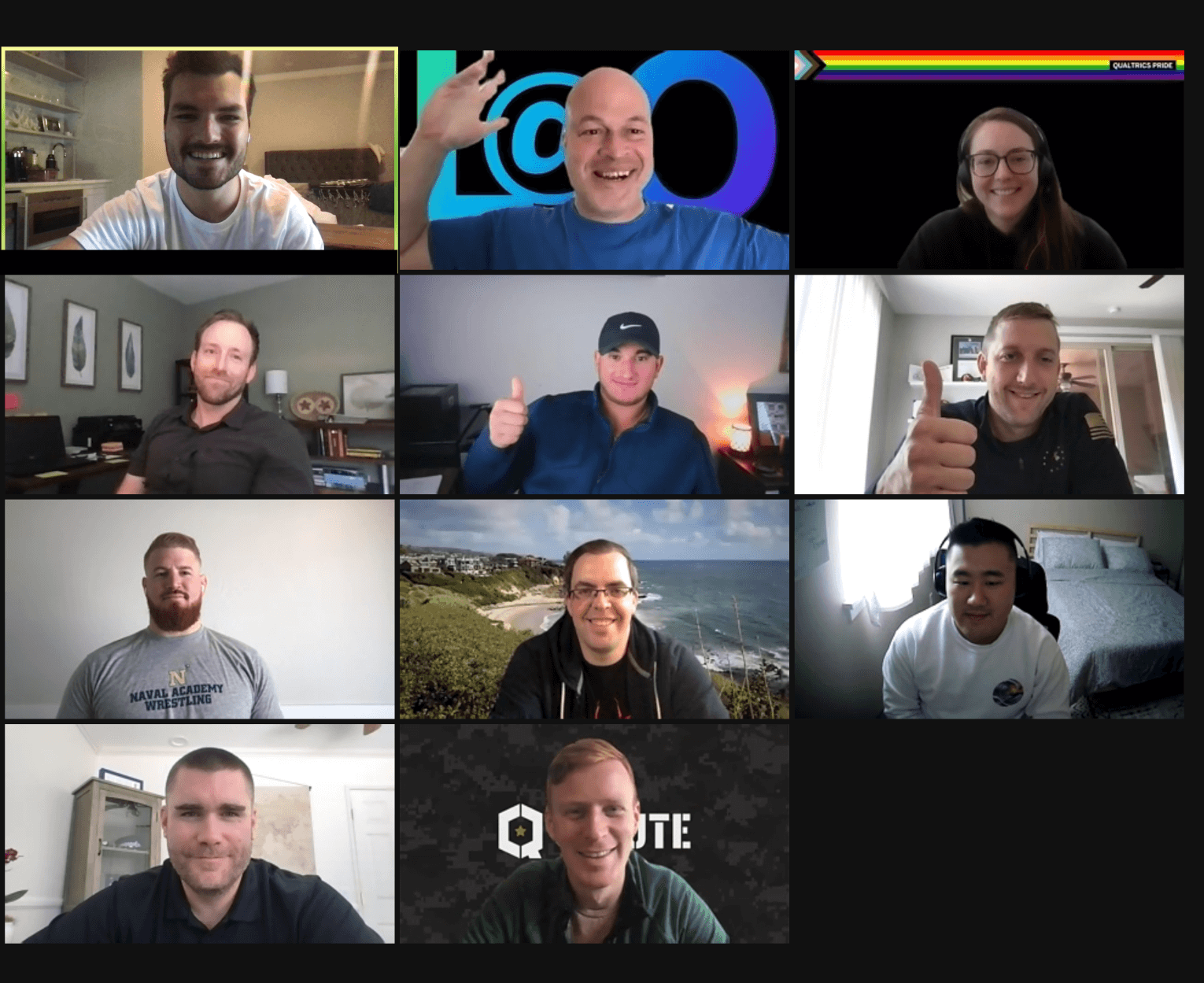
In light of the events unfolding in Afghanistan, millions of people in the workforce will be experiencing a swirling mixture of emotions, and leaders, colleagues, and employers have a key role to play in helping navigate that. David Gulbransen & Katrina Olson from QSalute, our veterans' employee resource group, outline the challenge and how you can support your colleagues by managing with empathy and acceptance.
When chaos reigns, many of us will naturally focus on what led us to the current situation. We question everything and dive into absorbing discussions with lots of different opinions, often with no easy or “right” answers.
And while we get caught up in “ifs,” “buts,” and second guesses, we should never lose sight of other human beings who are experiencing the chaos very differently from how we might be.
First among them of course is the Afghan civilians, both those fleeing as refugees and those remaining in their homeland, who are watching it unfold in front of them. With them stand the countless service members, veterans, aid workers, volunteers, contractors, and many others who served or spent time in Afghanistan. And their families and friends too, many of whom have lost loved ones in the conflict, and will all be feeling a wild mix of painful emotions right now.
While there’s no single solution to it all, there are some things everyone can do to support their colleagues through it.
"They are seen, heard, and loved"
It’s almost impossible for many of us to fully appreciate what our colleagues are going through. These are people who sacrificed so much of their time, physical, and mental health in an effort to improve the lives of the Afghan people.
They formed bonds with each other and with those they served, forged through experiences and trials the likes of which most of us will never experience.
And while there’s no singular solution to what they are feeling — after all, it will be unique to every one of them — we can all let them know that they are seen, they are heard, and they are loved.
Here are a few tips to help:
- Lead with empathy — Be present, listen, and try to understand their own lived experiences.
- Let them feel what they feel with no judgment — Make sure you let them know that no matter your own personal views, you are grateful for and proud of their willingness to serve and sacrifice.
- Normalize not being okay —Let them know that you are there for them if they need it, and give them space to process their feelings. Everyone will process things in their own way, so let them find their path through, and be there for them whichever one they choose to take.
- Don’t stay silent — Trust us, even if you feel wary that you don’t know the ins and outs of the situation, or can’t possibly understand their experiences, every veteran you work with will appreciate your respect, gratitude, and empathy. So, reach out. They’ll appreciate it!
Additional resources to help
Veterans Crisis Line — Call, chat, or text caring, qualified responders from the Department of Veterans Affairs
National Suicide Prevention Lifeline — Call or chat for free and confidential emotional support for suicidal crisis or emotional distress 24 hours a day, 7 days a week
How to support veterans (USA Today) — Useful article from USA Today with more tips and advice on supporting veterans
Afghanistan: Let’s Talk About It (VA) — A list of useful resources and helpful advice from the VA